Website Temporary Closed
Sega Genesis
The Sega Genesis is the US release of the Sega Mega Drive and is a 16-bit video game console released by Sega in North America in 1989. Mega Drive was the name used in Japan and Europe, while it was sold under the name Sega Genesis in North America, as Sega was unable to secure legal rights to the Mega Drive name in that region. The Mega Drive was Sega's fifth home console and the successor to the Sega Master System, with which it is electronically compatible.
The Genesis is part of the fourth generation era of consoles, and the first of its generation to achieve notable market share in Europe and North America. It was a direct competitor of the TurboGrafx-16 (which was released one year earlier) and the Super Nintendo Entertainment System (which was released two years later). The Sega Genesis began production in Japan in 1988 and ended with the last new licensed game being released in 2002 in Brazil.
[collapse collapsed title=read more...]
With over 29 million units sold, it became Sega's most successful console. The console has a legacy with certain games available on the console being offered as downloads to be played on newer consoles, fan translations and indie game development.
Although the Sega Master System was a success in Europe, and later also Brazil, it failed to ignite much interest in the North American or Japanese markets, which, by the mid-to-late 1980s, were both dominated by Nintendo's large market shares. Meanwhile in the arcades, the Sega System 16 had become a success. Hayao Nakayama, Sega's CEO at the time, decided to make its new home system utilize a similar 16-bit architecture. The final design was eventually also used in the Mega-Tech, Mega-Play and System-C arcade machines. Any game made for the Mega Drive hardware could easily be ported to these systems.
The first name Sega considered for its console was the MK-1601, but it ultimately decided to call it the "Sega Mega Drive" in Europe and Japan. The name was said to represent superiority and speed, with the powerful Motorola 68000 processor in mind. The North American version went by the name "Genesis" due to a trademark dispute.
The Sega Genesis initially competed against the aging 8-bit NES, over which it had superior graphics and sound. Despite this, the Genesis was all but ignored in Japan as soon as it was launched. Some positive coverage came out of magazines Famitsu and Beep!, but Sega shipped only 400,000 units in the first year. In order to sell more units, Sega tried some risky moves, including creating an online banking system and answering machine called the Sega Anser and several peripherals and games. The Mega Drive remained a distant third in Japan behind Nintendo's Super Famicom and NEC's PC-Engine throughout the 16-bit era.
One of Sega's most famous advertisements in North American media was its slogan "Genesis does what Nintendon't", which showcased the graphics advantage that the Genesis held against the aging NES. New Sega of America CEO Michael Katz instituted a two-part approach to build sales in that region. The first part involved a marketing campaign to challenge Nintendo head-on and emphasize the more arcade-like experience available on the Genesis, summarized by the slogan "Genesis does what Nintendon't". The second part, since Nintendo owned the console rights to most arcade games of the time, involved creating a library of instantly-recognizable titles by contracting with celebrities and athletes to produce games using their names and likenesses; Pat Riley Basketball, Arnold Palmer Tournament Golf, James 'Buster' Douglas Knockout Boxing, Joe Montana Football, Tommy Lasorda Baseball, Mario Lemieux Hockey, and Michael Jackson's Moonwalker all stemmed from this initiative. Nonetheless, it had a hard time overcoming Nintendo's ubiquitous presence in the consumer's home.
Sega CEO Hayao Nakayama, fearing a second market failure soon after the Master System, hired Tom Kalinske to replace Katz in mid-1990. Although Kalinske initially knew little about the video game market, he learned quickly and surrounded himself with industry-savvy advisors. A believer in the razor and blades business model, he developed a four-point plan: cut the price of the console; create a US-based team to develop games targeted at the American market; continue and expand the aggressive advertising campaigns; and replace the bundled game with a new title, Sonic The Hedgehog. The Japanese board of directors asked "Are you out of your mind?", but Nakayama approved all four points. Magazines praised Sonic as one of the greatest games yet made, and Sega's console finally took off as customers who had been waiting for the Super NES decided to purchase a Genesis instead. Nintendo's console would debut against an established competitor, while NEC's TurboGrafx-16 was left out and NEC soon pulled out of the market.
Sega began 1992 with a number of advantages: a 55% to 45% market share over the Super NES, a lower price, and a tenfold advantage in number of games. Sega's advertising continued to position the Genesis as the "cooler" console, and coined the term "Blast Processing" to suggest that the Genesis was capable of handling games with faster motion than the SNES. A Sony focus group found that teenage boys would not admit to owning a Super NES rather than a Genesis. Neither console could maintain a definitive lead in market share for several years.
By the end of 1995, Sega was supporting five different consoles and two add-ons: Saturn, Genesis, Game Gear, Pico, Sega CD, 32X and Master System in PAL and some South American (predominantly Brazilian) markets. As the Saturn was leading Sony's PlayStation in Japan while the Mega Drive was never successful there, Sega of Japan CEO Hayao Nakayama chose to discontinue the Mega Drive. While this made perfect sense for the Japanese market, it was disastrous in North America: the market for Genesis games was much larger than for the Saturn, but Sega was left without the inventory or software to meet demand. In comparison, Nintendo concentrated on the 16-bit market and reported the most lucrative holiday season in the industry. It also undercut the Sega of America executives; CEO Tom Kalinske, who oversaw the rise of the Genesis in 1991, grew uninterested in the business and resigned in mid 1996.
In 1997, Sega licensed the Genesis to Majesco so that it could re-release the console. Majesco began re-selling millions of formerly unsold cartridges at a budget price together with the second model of the Genesis, until it later released a third version of it. The last commercially licensed release in North America was Frogger, released in 1998.
The Mega Drive was supported until 1997 in Europe, when Sega announced it was dropping support for it. It was discontinued along with its predecessor, the long-lived Sega Master System, to allow Sega to concentrate on its newer console, the Saturn. The Mega Drive's add-ons, the Mega CD and 32X, were also both discontinued at this point, having been the same general failures they were in the other regions.
[/collapse]
- HOME


- PRODUCTS

- 3DO
- Amiga CD32
- Amstrad GX4000
- Atari 2600
- Atari 7800
- Atari Jaguar
- Atari Jaguar CD
- Atari Lynx
- Bandai Wonderswan
- Coleco
- Colecovision
- Famicom
- Famicom Disk System
- Grandstand
- JAMMA
- Mattel Intellivision
- MB
- Microsoft Xbox
- MSX
- Neo Geo AES
- Neo Geo CD
- Neo Geo MVS
- Neo Geo Pocket
- Nintendo 64
- Nintendo Game and Watch
- Nintendo Gameboy
- Nintendo Gameboy Advance
- Nintendo Gameboy Colour
- Nintendo Gamecube
- Nintendo NES
- Nintendo Virtual Boy
- PC Engine
- PC Engine CD
- Philips CDI
- Sega 32X
- Sega Dreamcast
- Sega Game Gear
- Sega Genesis
- Sega Master System
- Sega Mega CD
- Sega Megadrive
- Sega Nomad
- Sega Saturn
- Sony Playstation
- Sony Playstation 2
- Super Famicom
- Super Nintendo
- Texas Instruments
- Tiger Game Com
- Tomy
- Vectrex
- Japanese Video Game Imports
-

- MODIFICATIONS

- Switchless Modification
- Modification Sega 32X
- Modification Sega Dreamcast
- Modification Sega Megadrive
- Modification Neo Geo AES
- Modification Neo Geo CD
- Modification Nintendo NES
- Modification Sega Master System
- Modification Sega Mega-CD
- Modification Sega Nomad
- Modification Sega Saturn
- Modification Super Nintendo
-

- TECHNICAL INFO


- NEWS


- ABOUT US


- MEMBERS


- CONTACT US


Log on
x
Just In!
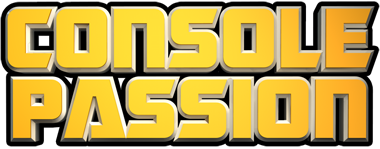
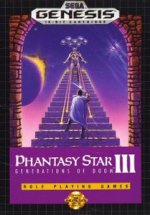
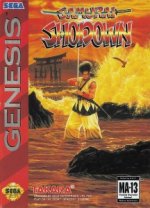
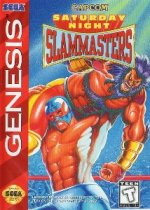
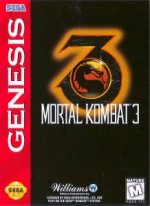
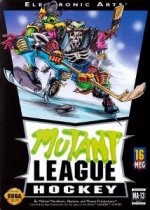
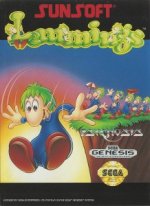
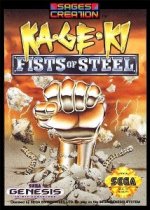
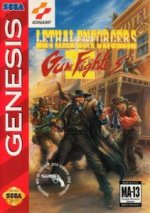

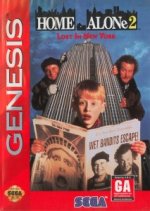

 Save time
Save time